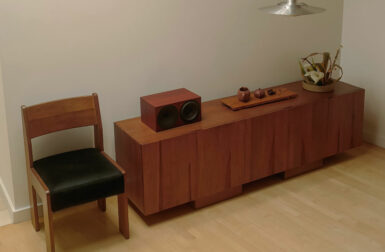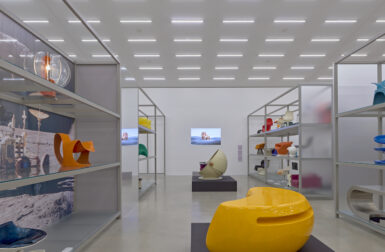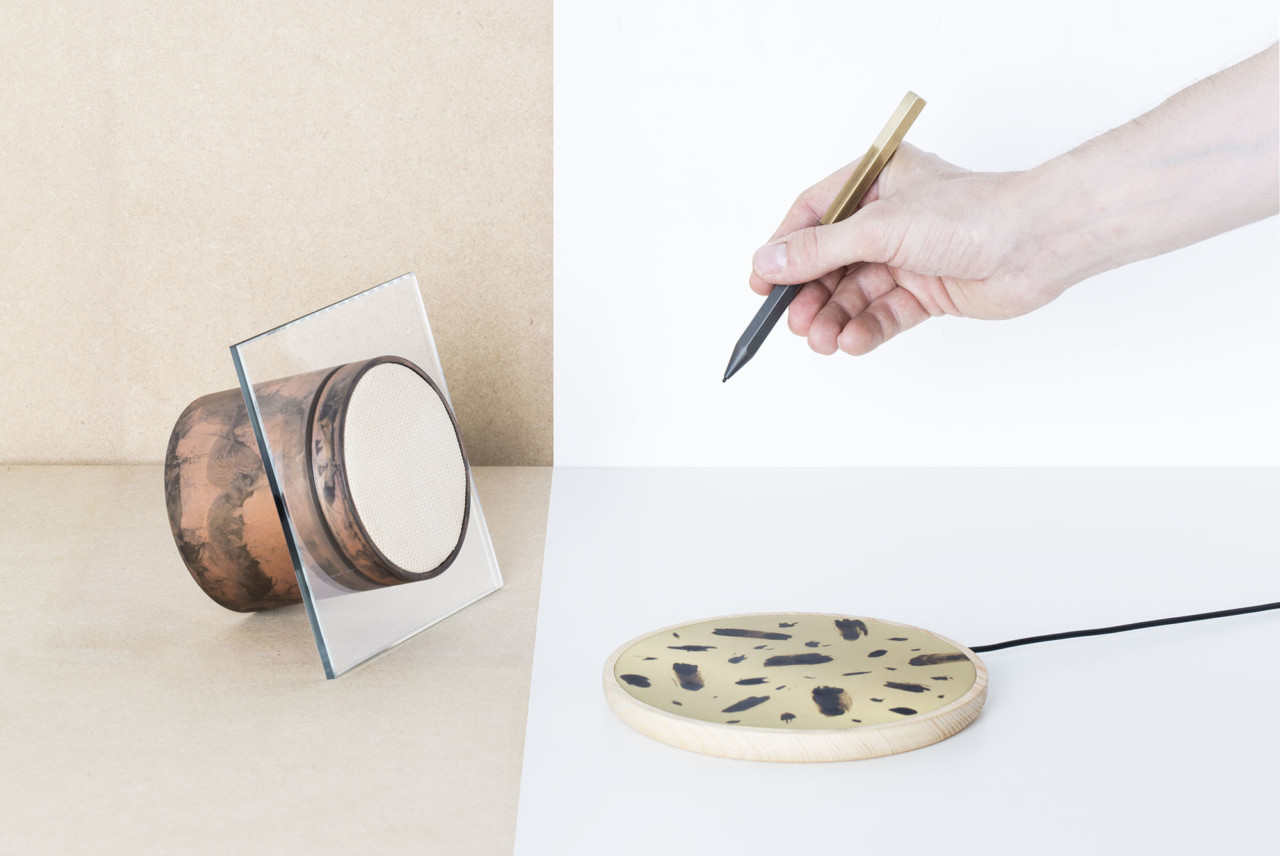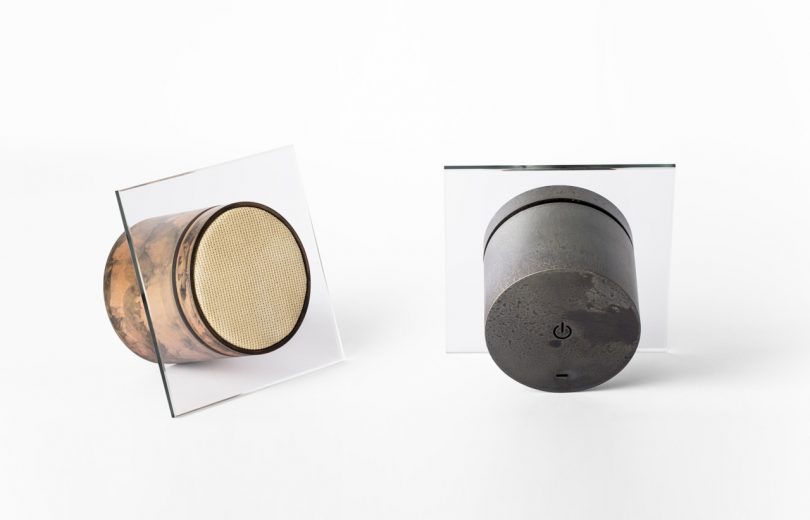A recent study discovered 44.7 million metric tonnes of electronic waste — the equivalent of 4,500 Eiffel Towers – is produced annually. And of that staggering figure, only 20 percent of electronic waste generated will be collected and recycled. Italian designer Mario Alessiani wants to help turn the trend toward more sustainable production, proposing three examples of technological tools – a smartphone charger, a bluetooth speaker, and a touch screen pen – crafted purposely without plastics.
The 30-year old designer’s Soul Tech collection is a modern day desk set of sorts, comprising a Bluetooth speaker made with glass, cane, and weathered steel, a wireless charging base made of wood, copper, and brass, and a touchscreen pen crafted with brass or aluminum. Alessiani envisions all three designs as working proof of how “craftsmanship can fully live the contemporary, taking advantage of the availability of everyday technologies to create aesthetically appreciable objects that we usually buy from multinationals and large industries that work with plastic and serial materials.”
The objects that I propose in this collection are the practical demonstration that craftsmanship can fully live the contemporary, taking advantage of the availability of everyday technologies to create aesthetically appreciable objects that we usually buy from multinationals and large industries that work with plastic and serial materials.
– Mario Alessiani
The trio of designs does present a departure from the majority of consumer electronics designed at industrial scale manufacturing with affordable materials like plastic – a proposition tying traditional skills like metal work, cane weaving, and glass making with technological components into products imbued with an element of “soul” normally associated with crafts. It’s a bold proposition, considering technology not only requires industrial scale production for the purpose of cost and availability, but rare metals and petroleum-based componentry within any electronic product adds to the cumulative environmental effects of E-waste annually.
But perhaps in envisioning technology designed with the ethos “no mass production, no plastics,” Mario Alessiani has planted the hope technology will one day be designed not only to be used over a lifetime, but is also appreciated with a similar emotional attachment normally associated with objects of craft.





















